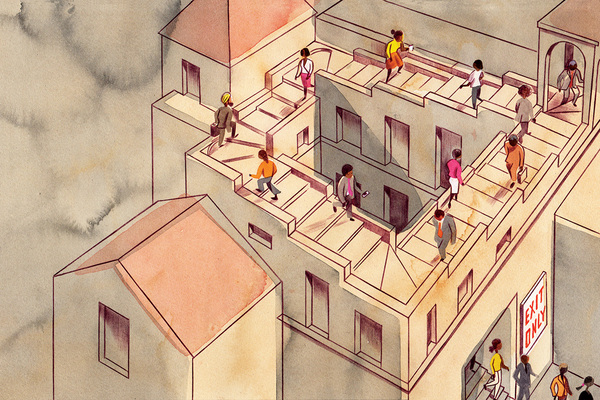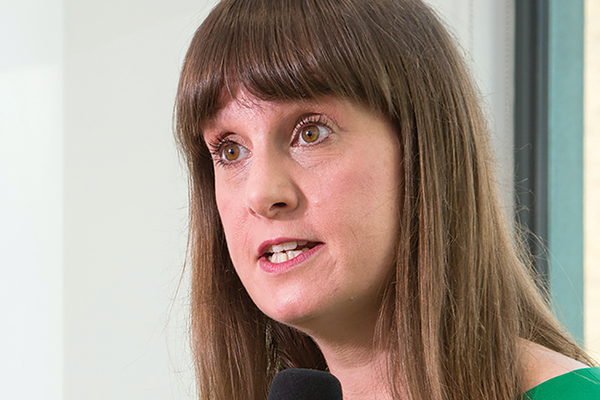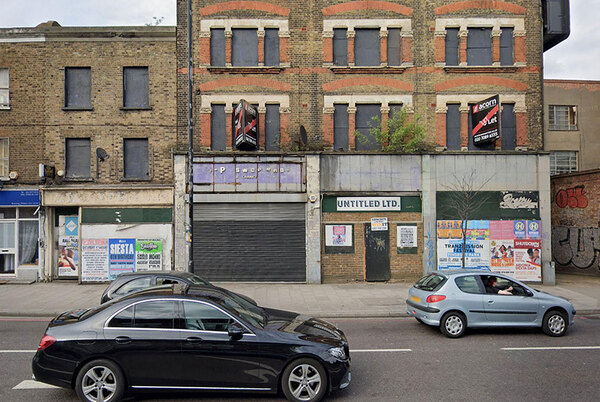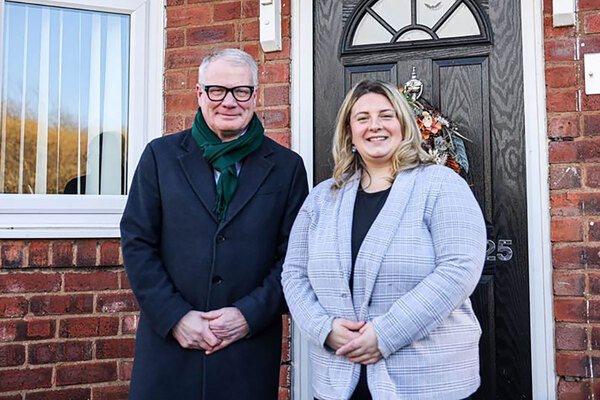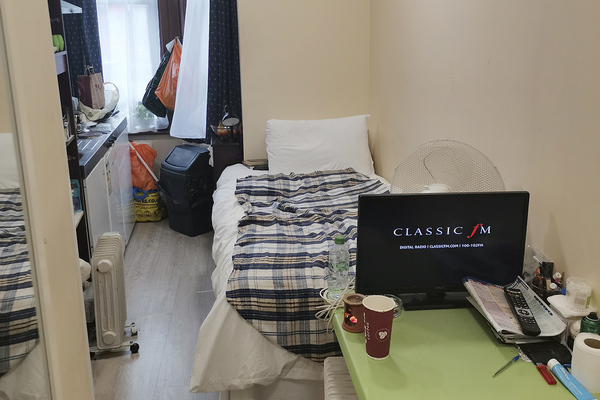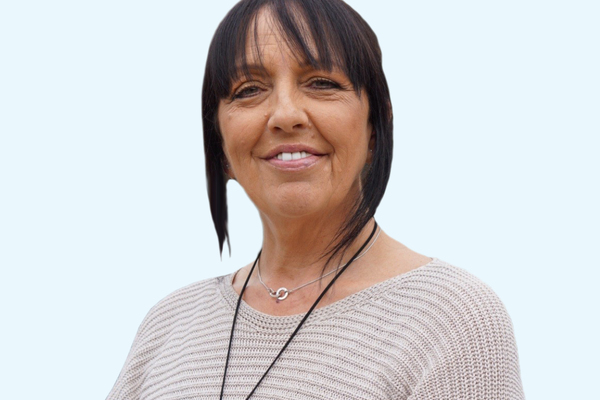You are viewing 1 of your 1 free articles
The traineeships getting Black, Asian and minority ethnic people into housing jobs
PATH traineeships provide an important way into a housing career for Black, Asian and minority ethnic people in Scotland. But now the charity that provides this path into housing is at risk because of a funding cut. Jess McCabe reports
Among the very many statistics produced by the Scottish Housing Regulator is one that is particularly surprising. It is the percentage of staff working for social landlords who identify as Black or minority ethnic. The most recent figure? Two per cent.
That is pretty unrepresentative – given that 4% of the Scottish population identify as Black or minority ethnic.
The Scottish government has its eye on the problem – its recent race equality action plan committed “to address staffing imbalances where there is an under-representation of an existing group” in the housing sector. (Unfortunately, in the final report on the action plan, this goal is marked down as “paused due to the COVID-19 pandemic and will be resumed as soon as possible”, so we cannot say much about how this is going.)
“With working at home, it has slowed down the learning process, but I have been working on some tenant accounts and shadowing via Teams, which has been good”
One of the main ways that Scottish landlords are “addressing staffing imbalances” is with the help of a small, Glasgow-based charity called PATH Scotland. PATH stands for Positive Action Training in Housing. It runs intensive traineeships for Black, Asian and minority ethnic people to get a foot in the door on their housing career. Since it was set up in 1999, more than 250 people have been through PATH Scotland’s traineeships. But now this programme is under threat, after PATH lost a key £85,000 Scottish government grant that had been covering its core costs.
So Inside Housing wanted to find out more about what this charity does – and the experiences of current and former trainees. Debbie Lee is one of 10 current trainees, a year into her placement at West Dunbartonshire Council. She spends three days a week on a work placement at the social landlord, and one day a week studying for a housing diploma at the University of Glasgow.
“It was daunting handing in my notice, knowing COVID-19 wasn’t looking good and that I was leaving a full-time, permanent job, but I have made the right choice,” she says. “With working at home, it has slowed down the learning process, but I have been working on some tenant accounts and shadowing via Teams, which has been good.”
Trainees are paid a training allowance by the landlords, tied to the Scottish living wage (which is £9.50 an hour). They do not need to pay tax or national insurance on this allowance. Typically, the traineeship lasts three years, during which time they might spend time working in lots of different departments, to get a breadth of experience.
“It brings fresh eyes, fresh ideas. We learn from them”
One day a week the trainees go to university and study for a relevant qualification – the most common being a housing diploma. The costs of studying are currently split, with PATH Scotland paying 25% and the social landlord paying the rest of the cost – although PATH told Inside Housing that this will need to change because of its funding problems.
Although the traineeship does not guarantee a job, one study found that 85.7% go on to find a job working for a social landlord after the traineeship ends. Current and past trainees are all very positive about the experience. A report commissioned to evaluate the charity is called “A life-changing experience”, taken from a quote from one of the trainees talking about the impact of the traineeship on them.
For the landlords that take on the trainee, there are lots of benefits. “It brings fresh eyes, fresh ideas. They’re going through a qualification, they’re being taught what is current best practice. They’re asking the ‘why’ questions: ‘why do we do that?’ We learn from them,” says Lynne Roach, HR manager at Queens Cross Housing Association in Glasgow, which has had four trainees since 2007.
“It’s a good experience for our other staff – they’re having to take on a mentoring or training [role] that as a smaller organisation we might not have been able to give that staff member”
Ms Roach says the 4,500-home association is “committed to having a workforce in place that reflects the demographics of the community we serve”. The problem is how to make that happen as a small organisation where staff tend to stay in post for a long time (Ms Roach, for example, has been at Queens Cross for nine years). One of the organisation’s former trainees is now a maintenance manager there, but Ms Roach says that for the most part trainees have moved on to roles at other landlords.
Glen Housing Association in Fife, which manages 500 homes, has had a number of trainees and is hoping for another to start soon. Anne Dickie, director of Glen, says that any organisation taking on a trainee gets “a really committed staff member”.
She adds: “It’s a good experience for our other staff – they’re having to take on a mentoring or training [role] that as a smaller organisation we might not have been able to give that staff member.”
She also praises PATH Scotland for making the whole process very easy – the charity takes on a lot of the admin, for example advertising for the trainee. “I don’t understand why there’s not more organisations taking this up,” she says.

Still, interviews with former trainees by Inside Housing reveal that traineeships are far from the end of the story. One former PATH trainee told us that she finished the programme more than a decade ago, rating it highly, and quickly got a job in a council housing department. She did not want to be named in this story. She tells Inside Housing that she is “stuck” in that job, and feels there is no prospect of promotion.
“I thought I was going to be qualified enough, but even with the qualifications, it seems not to be enough to get a housing officer post”
“I’m the only Black person. There aren’t any other ethnic minorities,” she says.
She believes her lack of career progression is down to racism. “It’s very sad. It’s very hard to prove. It’s done in a very subtle way. The people that you’ve trained end up managing you. I should be on a different level.”
Ben Chatambarara did his traineeship placement at Glen. He moved to the UK in 2004 and initially lived in the private rented sector. “The state of properties was really, really bad. As a result, I became interested in helping people to get a better house,” he says.
So when he heard about the PATH traineeship, it seemed to be a way into housing. He first did a business and finance degree at Abertay University, then became a PATH trainee. By all accounts he did really well on the traineeship, completing with a postgraduate diploma in housing from the University of Stirling. When Mr Chatambarara got to the end of his traineeship, there were no roles available at Glen, and he started to apply for other jobs. “I thought I was going to be qualified enough, but even with the qualifications, it seems not to be enough to get a housing officer post,” he recalls.
The origins of PATH
“We are a small organisation, we pack a punch and have made a big impact,” says Najimee Parveen, director of PATH Scotland. But where did the charity start?
PATH programmes date back to the 1980s, when they were set up throughout the UK to provide an entry point into a housing career for Black, Asian and other minority ethnic people. PATH gave a foot in the door to many senior figures in English housing today, including Sandra Skeete, chief executive of Octavia.
By 2000, most of the PATH programmes in England had shut down. But one was just getting started. PATH Scotland was set up in 1998, and it is still going strong more than 20 years later.
Ms Dickie says: “He was very good, and I know that the references we were able to give were genuine references and he’d had three years of experience. We got uncomfortable about how [Mr Chatambarara] wasn’t being successful in any of these interviews,” she says.
Ultimately, Glen arranged a secondment to another landlord, which led to a job. But some time later, when a post came up at Glen for a housing assistant role, Mr Chatambarara applied and was hired.
Ms Dickie remembers thinking: “We know this guy’s good,” and hoping he did well. “As it turned out, he gave a great interview and we hired him,” she says.
“It was like going back to your family because that’s where I did my training,” Mr Chatambarara says. But still, he says, “I’d have stayed with [the other landlord] if I’d been given the opportunity to progress. I was getting interviews all the time. I would get the interview. After that it would just fall apart.”
These stories are similar to PATH Scotland’s own findings. “People have raised that with us. They get so demoralised they are thinking of applying for jobs down south,” says Najimee Parveen, who has been director of PATH Scotland since 1999 – only a year after it was set up (see box). (It is worth noting that PATH does also offer ongoing career support for former trainees, and runs a leadership programme and other initiatives.)
Callum Chomczuk, national director at Chartered Institute of Housing Scotland, says: “If we are failing to recruit from all communities, then as a profession we are failing to capitalise on the talent that exists across Scotland and deliver the best possible service for our tenants. All social landlords need to have in place talent development and succession strategies that help them ensure they reflect the communities they serve.”
Under-representation in Scottish housing
The Scottish Housing Regulator requires all landlords to collect demographic breakdowns that reveal detailed information about protected characteristics, not only of staff but also of existing tenants, new tenants, people on waiting lists and governing body members.
This provides a wealth of information allowing residents and the public to see how representative each landlord is. The data is only publicly available until 2018/19, but the regulator says that it is asking each landlord to “include an update on their position in relation to equalities and human rights in the annual assurance statement they will provide to us in October 2021”.
It is a precarious time for PATH as an organisation, as it seeks to find a way to close an £85,000 funding gap, after a change in Scottish government grant led to a loss of its core funding. “We’ve got project-based funding at the moment but the core funding is proving really difficult,” Ms Parveen says.
“We have provided a valuable resource to the housing sector for more than 20 years,” she adds. “We’ve had nothing but positive evaluations. As well as the housing sector, the Scottish government should also be looking at how they support the housing side of our work.”
It is also arguably a precarious time for the entire question of addressing race inequality, after the UK government’s controversial race commission has been accused of downplaying racism.
“We’re very disappointed, dismayed by the publication of the report, particularly in the context of Grenfell and Black Lives Matter,” Ms Parveen says. “It’s a denial of institutions having a responsibility to challenge racism, sexism and [other forms of discrimination].”
For now, PATH’s 10 current trainees continue their work placement and studies, with the hope of a career in housing. How many more trainees will be able to join them in future years? What will be their experiences getting jobs and progressing in their careers? Will landlords take concerted action to address under-representation in their staff and in senior roles?
The answer to these questions lies in the hands of the wider sector.
UPDATE 10.5.21 3pm
This article originally stated that more than 150 people had been through PATH Scotland's traineeship programme. The correct figure is more than 250 people.


